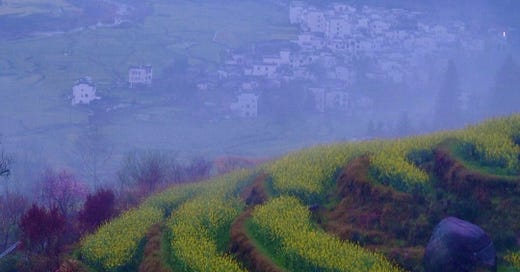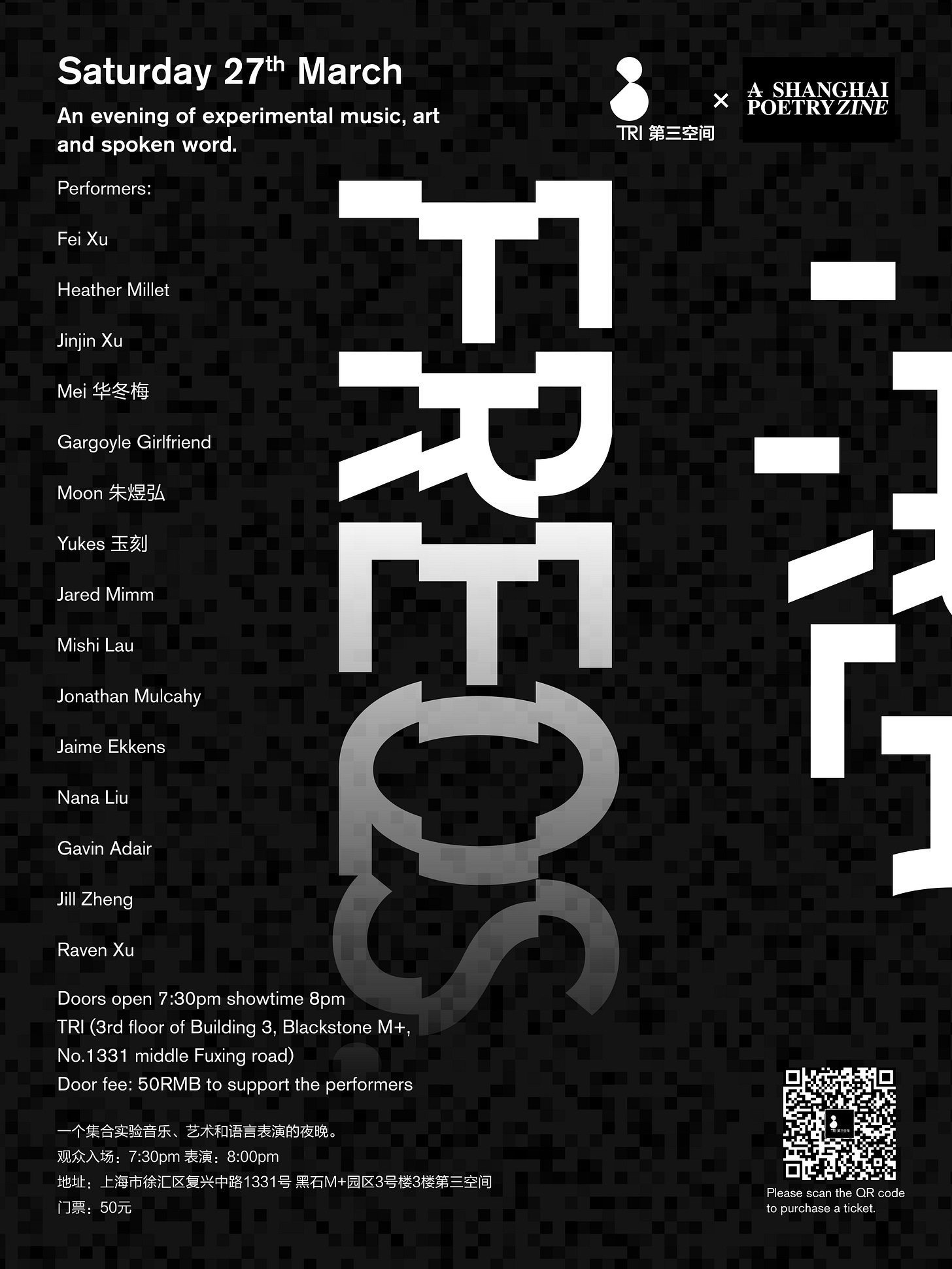Dear friends,
Facebook reminds me that it has been a year since I left NYC in a fearful hurry, a year since we have been locked in, a year of attempting to write—to keep on writing—when life is so still, yet so full of loss.
Details emerge, without clarity.
A year ago, on March 27, 2020, I was re-reading Ferrante’s Neapolitan Quartet during quarantine in Macau, and wrote in Pandemic Diaries #3,
Ferrante’s narrators shook me awake: “To write, you have to want something to survive you,” says her friend to the narrator, “I don’t even have the desire to live.” These words struck me, affirmed my aliveness and unfroze a buried feeling: though at the moment, I did not feel very much alive, I had, and I would.
I have spent most of this year attempting to keep this desire alive. More often, I wake and find language underwater and out of reach, writing felt like an abstract thing.
Last Sunday, I heard that the you cai hua, rape seed flowers, were in bloom in the ancient villages of 婺源 Wu Yuan, near my mother’s hometown. I decided to take the train West to go see, and to spend three days by myself after a year with my family. With me, I brought Agnes Martin’s Writings.
The village I stayed at was quiet, even the air stilled — a thousand years ago, it was perhaps the most bustling area in China. The wooden beams of the houses are intricately carved with stories, the grey washed bricks withstanding lifetimes of rainstorms. Now, the houses stand empty, the few elders are paid by the government to open their doors to nosy tourists.
Each morning, I woke with the roosters at 5 A.M. and took a long walk through the fog and the fields of yellow. A villager said that it was a pity for I had come too late, most of the flowers have fallen—only the uppermost part of the stalks were still yellow. Yet, their sparseness, amidst the endless green, moved me.
Agnes Martin writes: “We all believe in life. We feel a certain devotion.”
Before this trip, I had gone to the opening of the French Impressionists exhibit in Shanghai. It was my first time seeing art in person in a year, and despite the crowds jostling to take pictures with Monet’s water lilies, I was stilled.
The exhibit was curated to take us through the history of French Impressionism, journeying through the eyes of various artists until the strokes of paint loosen from the figures, and we end with huge Monet pieces painted near the end of his life— more physicality of paint than precise image in bloom, more gestures of light than what the eye sees, the raw canvas transforming into a foreground of mist.
As I stood in front of the paintings, I felt something jerk free. The bit of canvas, a raw feeling.
Agnes Martin writes:
“Say to yourselves. I am going to work in order to see myself and free myself. While working and in the work I must be on the alert to see myself. When I see myself in the work I will know that that is the work I am supposed to do. I will not have much time for other peoples problems. I will have to be by myself almost all the time and it will be a quiet life.”
My migraine subsides. A nauseous, after rain stillness.
How clean the page.
A year ago, I wrote:
There was something reassuring about Ferrante’s voice in her lucid narrative. Perhaps because the story is recounted from the future, we know that despite the trauma of the characters’ present, things will be okay, that it has already happened, and there will be a day when things can be looked back upon and told from a distance.
This was also the comfort of re-reading. I wanted to be embraced by the familiarity of deeply loved worlds—old friends who would keep me safe. Even as, in the books, the characters’ lives are irreparably ruptured: “Minutes and minutes and minutes that wouldn’t end,” Ferrante writes of a sudden earthquake that “expelled… the confidence that every second would be identical to the next” in The Story of the Lost Child. The rupture of their reality mirrored my own anxious uncertainty—the stability of this hotel room was a sham—and thus, the narrative held my fears, shaped them into a reality I could understand.
I am still looking for the shape of my aliveness.
Thank you for coming with me . I recently collected my year of Pandemic Diaries for The Common, if you would like to wander with me back in time…
Two upcoming events:
I want to invite you to the Inaugural Debut Authors Festival, I am co-hosting Tonight (Thursday, 7PM EST) for The Common. The event will feature brilliant debut (ie. without their first book) writers Ama Codjoe, Sara Elkamel, LaToya Faulk, Ben Shattuck, Angela Qian, and Ghassan Zeineddine, and raise funds for The Common’s “Young Writer Program.” RSVP here for Zoom link.
This Saturday, in Shanghai, I will be doing a multimedia performance of my piece “In America, You Are Asked Why Are Leaves Green?” at TRI, with a new original score by digital GuZhen artist Yukes and silks dancer Mei. Scan QR code on the poster below for details :)
with light,
JinJin






